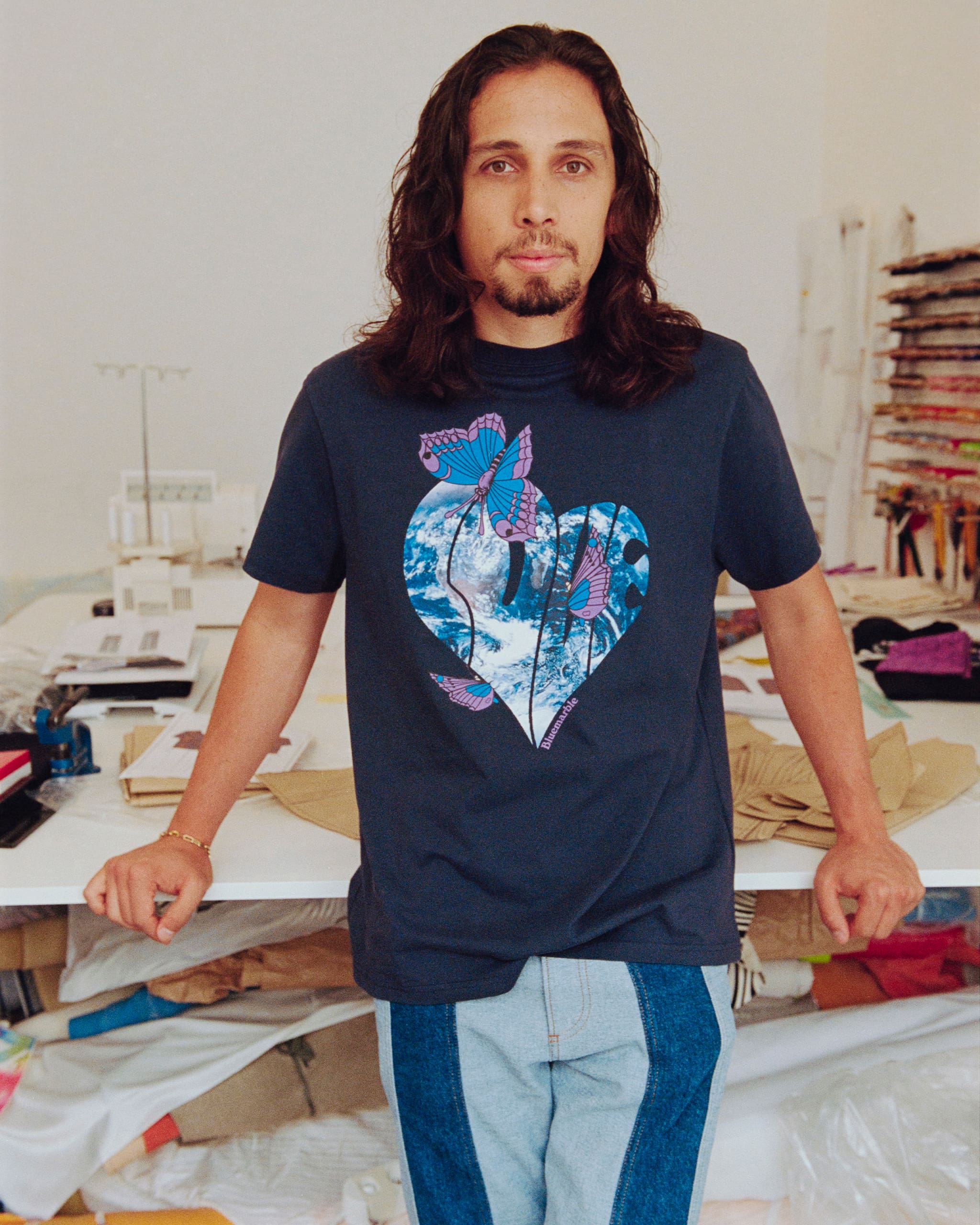Chuck Reyes
Multicultural thinking helped Anthony Alvarez and Bluemarble evolve.
Anthony Alvarez is a man rooted in many places. New York-born and Paris-raised to a Filipino father and a French mother, the founder of menswear label Bluemarble has a multivalenced perspective of the pale blue dot we all call home.
From a young age, Alvarez internalized the fact that the bonds between people have the power to traverse any distance.
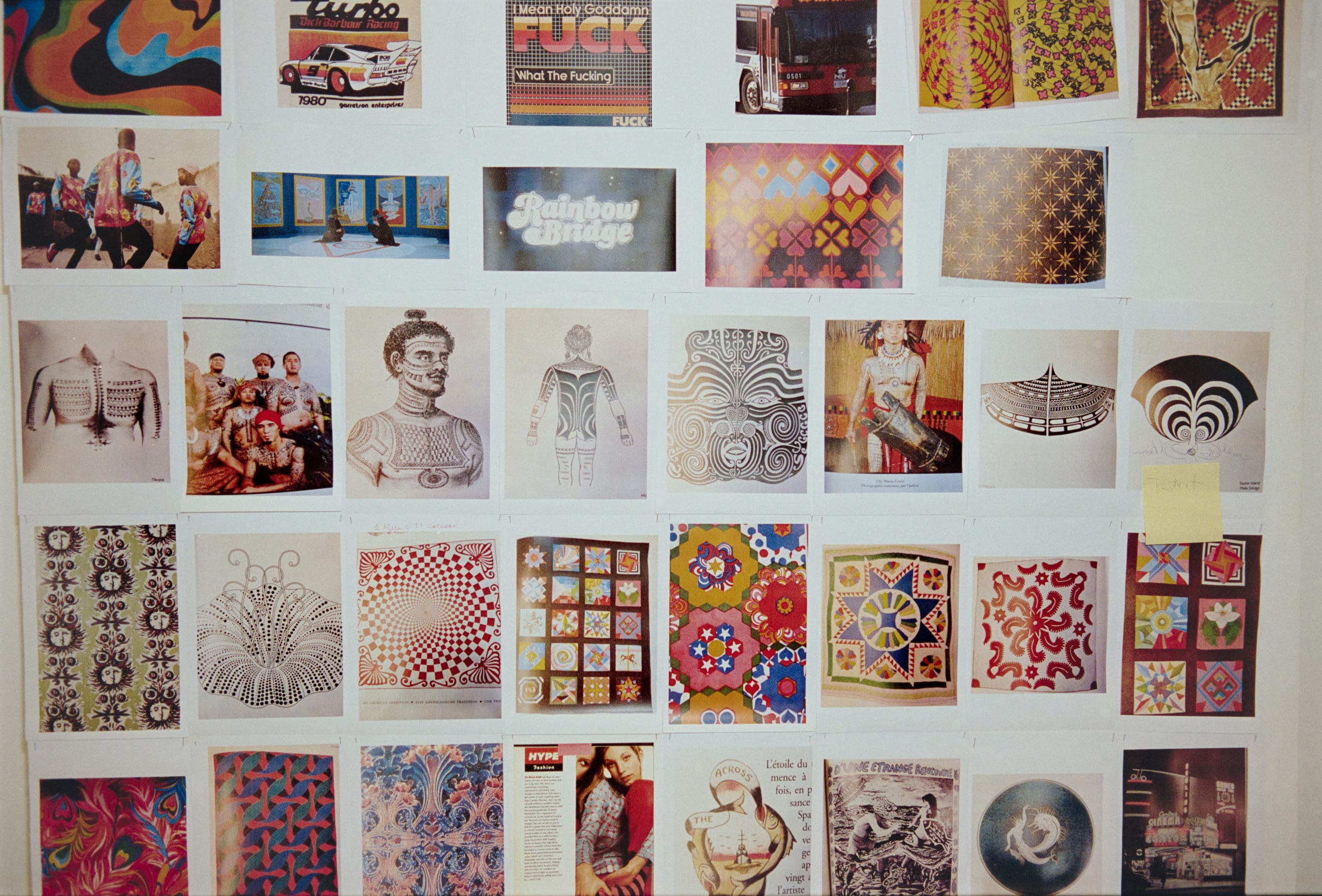
“With my friends in Paris, we had this small group where we would, during school vacation, go to the south of France to surf,” he says. “We’d also go to the skatepark as often as we could after class. I guess this carried on to when I got a bit older and it was really a way to disconnect from everything going on.”
To him, it’s clearly not just about the act of escaping or where you’re escaping to. What is equally important is who you’re escaping with.
Chuck Reyes
Finding Fashion
After finishing high school, Alvarez set his sights on the United States. “I’ve always had this interest in American culture, through the entertainment industry, through sports, and the values as well,” he says.
From the skate and surf culture of the ’90s, to the hippie culture of the ’60s, America has always been a source of fascination to him. He found himself at Cornell, where he studied economics and management. He would spend some time working in finance, in New York and London.
Then something began to change. “I decided to just stop everything. I wasn’t fulfilled and thriving in what I was doing,” he says. “It was just one day after another. I decided to go to the Philippines to travel and (re)center myself.”
There, in 2016, he met people instrumental to his decision to pursue his dreams in fashion, people who were “happy to do what they were passionate about.”
“Clothing for me was really a way to transmit my values,” Alvarez recalls.
It is a compelling narrative that has been noticed by the fashion world. In 2022. Alvarez finished as a semi-finalist for the annual LVMH Prize for young designers. He recently won the Pierre Bergé Prize at ANDAM in Paris.
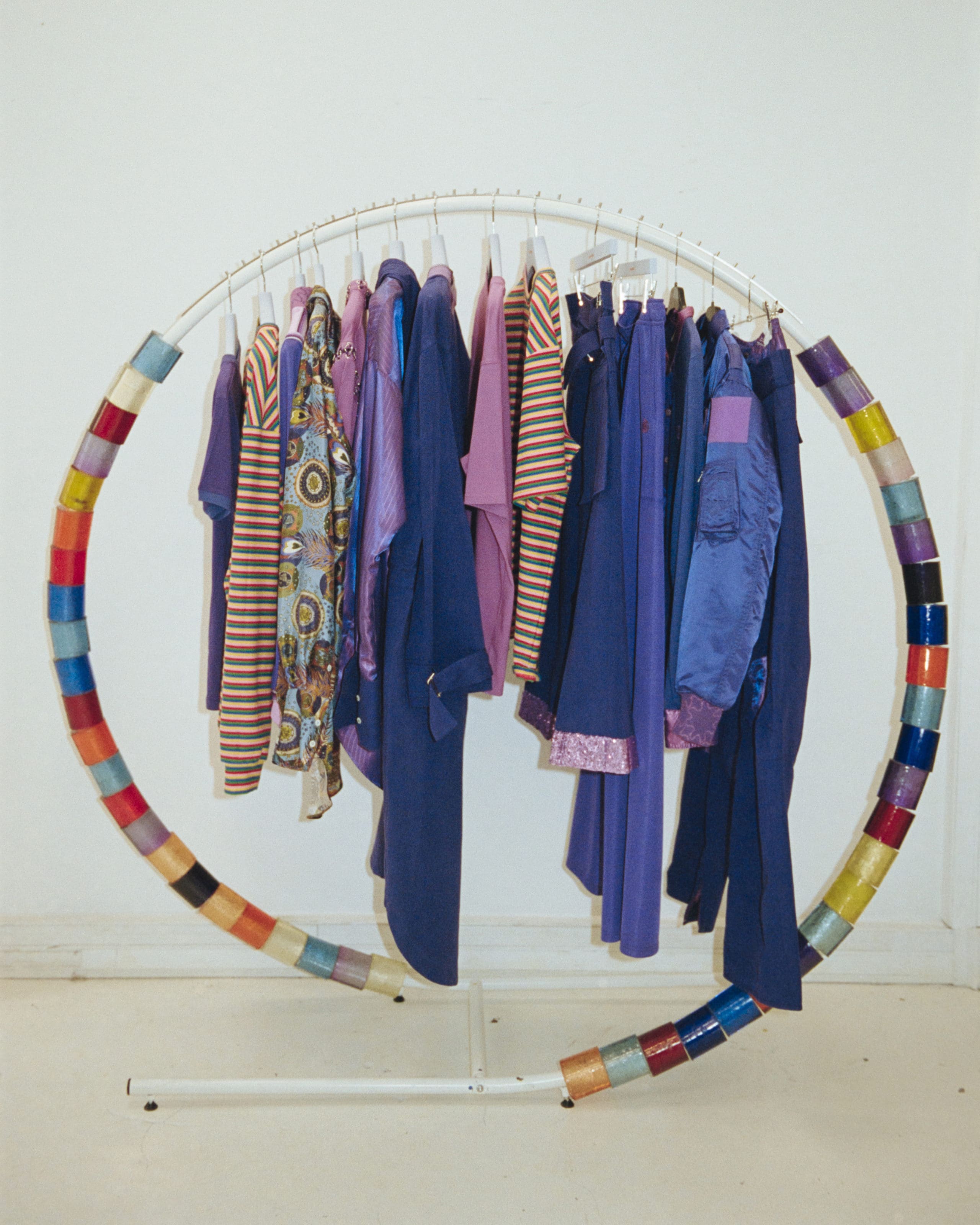
Multicultural Ethos
Multiculturalism is a mainstay of Alvarez’s creative vision. His own heritage is undergirded by the intimacies of three continents. He muses about this serendipitous alignment between his own path and the multiculturalism in the zeitgeist “How special it is to discover somebody that grew up in a different country or with a different religion,” he recounts. “Even through sports, when I used to do surf trips with friends, meeting people in different countries. You exchange with them—exchange food, exchange customs, and celebrate each of our individualities,” he explains. “And that’s always been so important to me.”
He decided to restart a different brand in 2019, taking the name given to the first picture taken of the Earth in its entirety.
There is much power in the name “Bluemarble.” It evokes the idea of a universal humankind yet aims to preserve rather than homogenize differences.
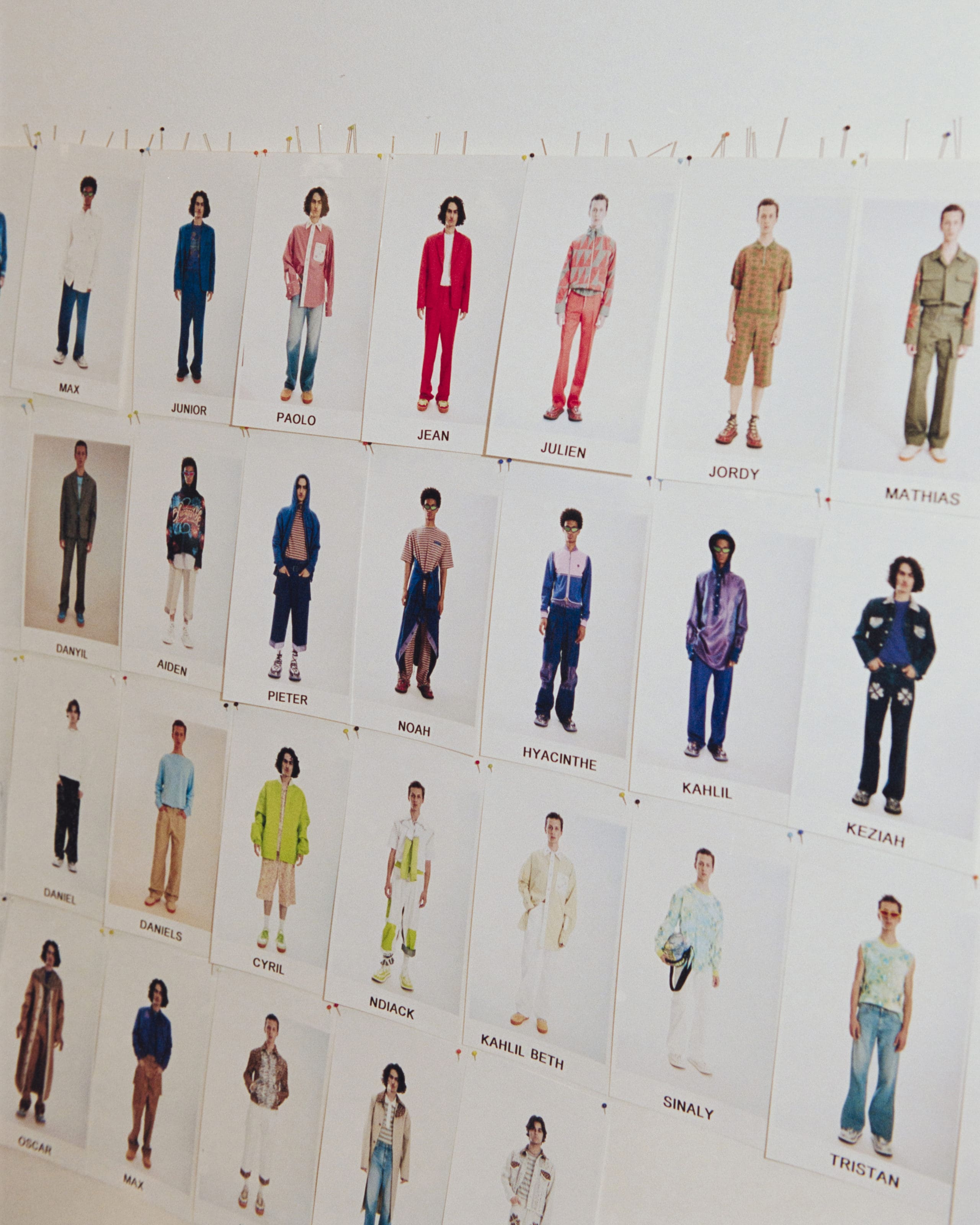
Rooted in People
“I think about myself, what I would want to wear, that’s not gonna change. Part of the collection is also what I wish I would wear, like a fantasy,” he shares. “In that case I think of the muses I have in my head like Dennis Rodman, Pharrell, Lenny Kravitz. People that inspire me a lot.”
With a parabolic view of the world, he hopes to express the vast influence of diverse cultures. Allowing for inspiration to weave it into his collection, into its fabric, as a bit of magic we might wear as we go off on our own adventures.
Maybe we can do the inverse. To see the world in something as miniscule a grain of sand, or a swathe of cloth, and have some of its wonder rub off.
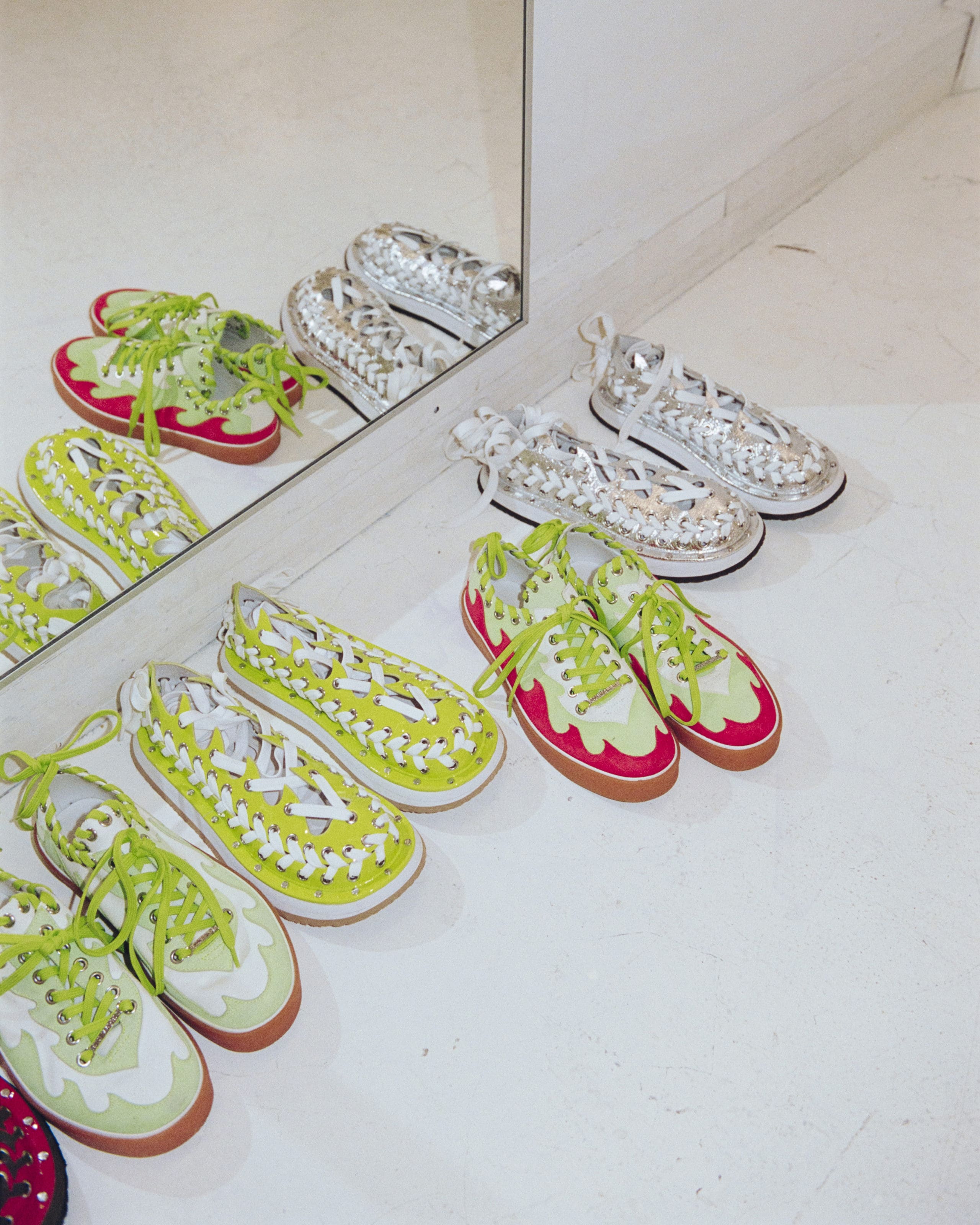
Cultural Identities
Alvarez points out similar cultural values resonate between his Provençal mother, his Corsican grandmother, his Filipino father and paternal grandparents.
“There is the importance of family, the importance of hard work, and also the third value I remember is the importance of celebration,” he says. “The need to laugh, the need to connect with each other…I’m not a nostalgic person but these are things that really marked me growing up.”
Often, Alvarez finds himself unpacking man cultural identities. For Millennials and Gen Z-ers, who came of age in the era of identity politics, this question is felt on a molecular level. Through every stitch, seam, and shirt, Alvarez is trying to find his answers.
He doesn’t have them yet. “Not having the answer is what makes this adventure so interesting as well,” he explains.
A version of this article originally appeared in Vogue Philippines‘ September Issue
